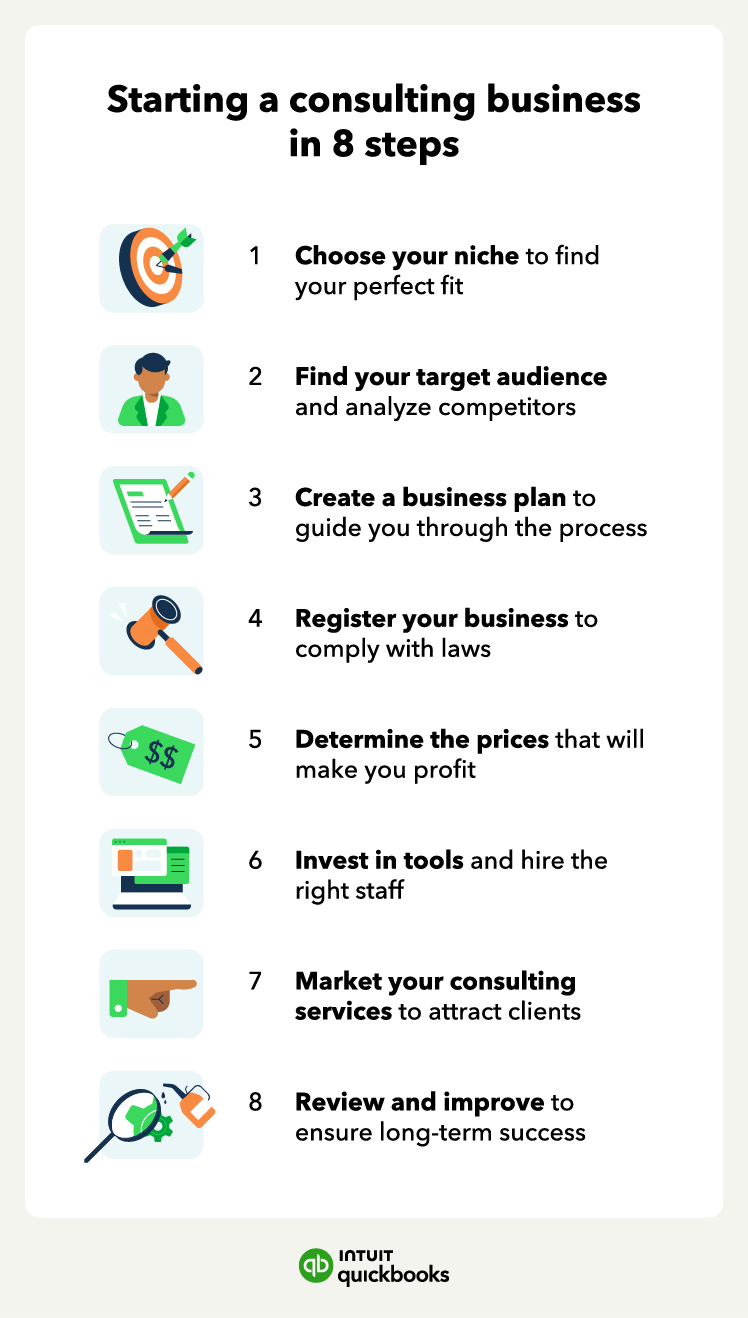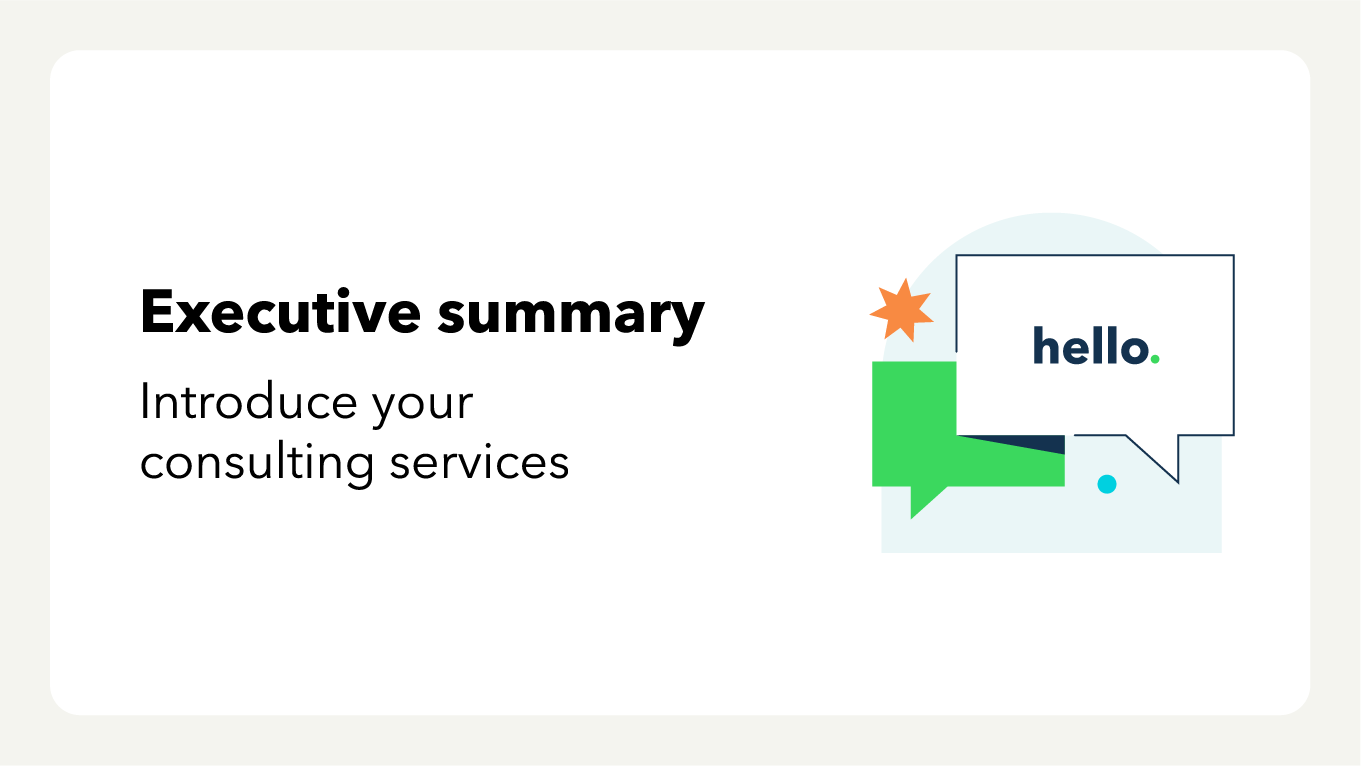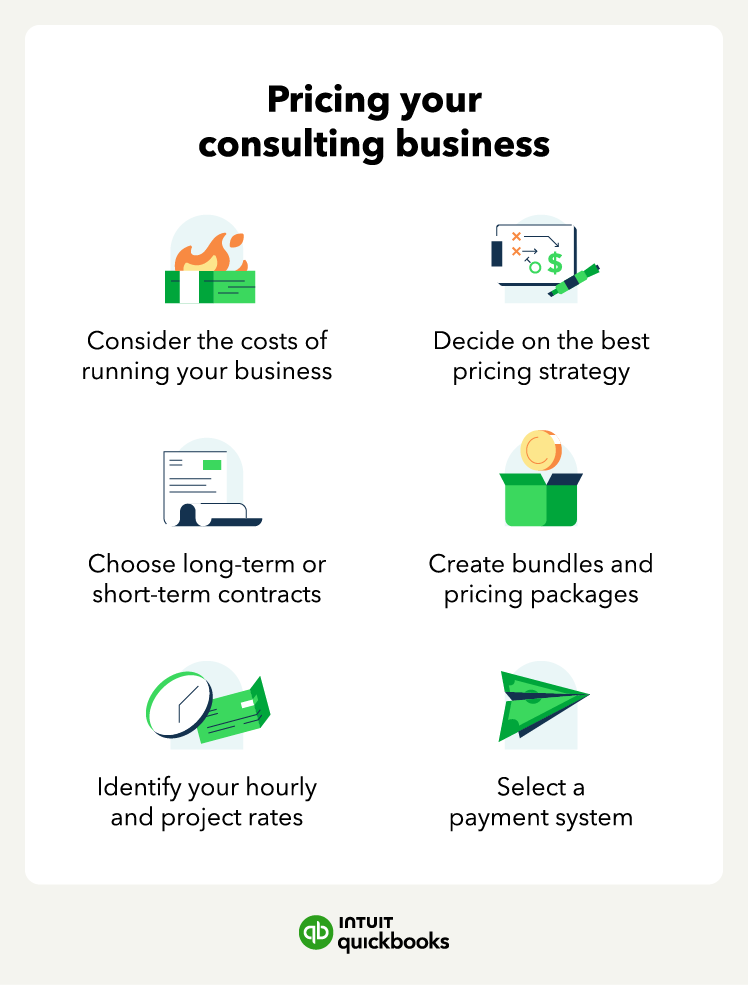Step 4: Register your business
All businesses have to register, file, and pay state and local taxes. To avoid any issues with your state and municipal governments, register your business well before opening your doors. This way, you can ensure you’re complying with all local and state laws.
In order to operate, businesses need specific licenses, permits, and insurance. Here are some necessary licenses, permits, and insurance all businesses should have:
- Business license: Allows you to legally operate your business, which you can obtain through your state or local government.
- Employer Identification Number (EIN): Informs the government that you’re an employer and allows you to hire and pay employees. You can apply for an EIN with the IRS.
- Building health permit: States that the building your consultancy business is located in (if you have one) is up to code and local regulations.
- Sign permit: If you want to place a sign on your building, this permit ensures it passes county and city rules.
- General liability insurance: Protects your business from property damage and personal injury claims. It also covers advertising injury claims and medical expenses.
- Commercial property insurance: Protects your physical assets, like technology and furniture, from damage.
- Additional licenses for specific business types: Depending on your type of consulting service, you may also need other permits or certifications to operate.
Additionally, you must first obtain an Employer Identification Number (EIN) and complete your state application to register for state and local taxes.
Because the professional services industry contains a wide array of business types, each type may have its own set of required licenses and permits. For example, lawyers will need a license to practice, while accountants may need to hold a CPA license. To determine all the requirements, consult your state or local government.

















